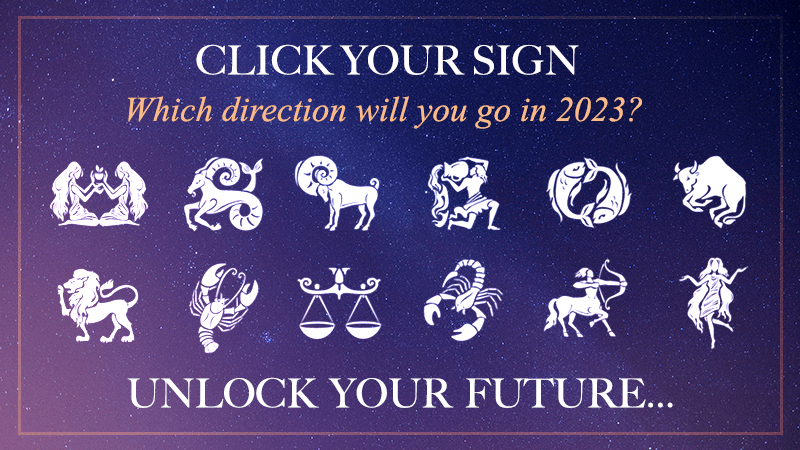If you’ve always been intrigued by astrology but have no idea where to begin, this article is here to help. Whether you’re looking to understand your own birth chart or simply want to delve into the world of zodiac signs, astrology has so much to offer. From determining your sun sign to exploring the significance of different planets and houses, you’ll find all the essential information you need right here. So, grab a cup of tea, get comfortable, and let’s embark on this exciting journey into the captivating realm of astrology.
What is astrology?
The definition of astrology
Astrology is the study of the positions and movements of celestial bodies, such as the planets and stars, and their influence on human behavior and events. It is based on the belief that there is a connection between the positions of these celestial bodies and the characteristics, traits, and experiences of individuals and societies.
The history of astrology
Astrology has a rich and fascinating history that spans thousands of years. Its origins can be traced back to ancient civilizations, including Mesopotamia, Egypt, Greece, and China. Throughout history, astrology has been practiced and studied by scholars, philosophers, and astrologers from various cultures. It has been integrated into religious, philosophical, and cultural practices, shaping the belief systems and worldviews of different societies.
The role of astrology in different cultures
Astrology has played a significant role in various cultures throughout history. In ancient times, it was seen as a guiding tool for rulers and decision-makers in political and military matters. It provided insights into personal characteristics, fate, and compatibility in relationships. In some cultures, astrology was also used for religious and spiritual purposes, as a means of understanding the divine will and seeking guidance. Today, astrology continues to hold a place in many cultures as a source of self-reflection, personal growth, and understanding of the world around us.
Understanding the zodiac signs
The 12 zodiac signs and their characteristics
The zodiac signs are a fundamental element of astrology. There are twelve signs in total, each representing distinct personality traits and characteristics. Aries, Taurus, Gemini, Cancer, Leo, Virgo, Libra, Scorpio, Sagittarius, Capricorn, Aquarius, and Pisces form the zodiac wheel. Each sign is associated with different elements (fire, earth, air, and water) and modalities (cardinal, fixed, and mutable), which further define their qualities and tendencies.
The elements and modalities in astrology
The elements (fire, earth, air, and water) in astrology symbolize different energy patterns and temperaments. Fire signs (Aries, Leo, and Sagittarius) are known for their passion, energy, and enthusiasm. Earth signs (Taurus, Virgo, and Capricorn) are grounded, practical, and focused. Air signs (Gemini, Libra, and Aquarius) are intellectual, communicative, and social. Water signs (Cancer, Scorpio, and Pisces) are emotional, intuitive, and deeply sensitive.
The modalities (cardinal, fixed, and mutable) describe the way each sign initiates, maintains, and adapts to change. Cardinal signs (Aries, Cancer, Libra, and Capricorn) are dynamic, energetic, and natural leaders. Fixed signs (Taurus, Leo, Scorpio, and Aquarius) are stable, determined, and resistant to change. Mutable signs (Gemini, Virgo, Sagittarius, and Pisces) are adaptable, flexible, and open to new experiences.
The importance of the sun sign
The sun sign, also known as the zodiac sign, represents the position of the sun at the time of your birth. It is often considered the most significant sign in astrology, as it reflects your core identity, ego, and vitality. Your sun sign reveals your basic personality traits, strengths, and challenges. Exploring your sun sign can provide valuable insights into your motivations, aspirations, and areas of personal growth.
This image is property of images.unsplash.com.
Calculating and interpreting your birth chart
The components of a birth chart
A birth chart, also called a natal chart, is a map of the sky at the exact moment and location of your birth. It consists of various elements, including the positions of the sun, moon, and planets in the zodiac signs, as well as the astrological houses. Each planet represents different aspects of your personality and life experiences, while the houses indicate the different areas of life that are influenced by these planetary energies.
How to calculate your birth chart
Calculating your birth chart requires your birth date, time, and location. There are several websites and astrology software available that can generate your birth chart based on this information. By inputting the specific details, you can obtain a detailed snapshot of the planetary positions and their interactions at your time of birth. This personalized birth chart provides valuable insights into your unique astrological makeup.
Interpreting the different aspects of your birth chart
Interpreting your birth chart involves analyzing the relationships and aspects between the planets, as well as their placements in the different signs and houses. This process requires studying the meanings of the planets, signs, and houses individually and in combination. By understanding the dynamics between these astrological factors, you can gain insights into your personality traits, strengths, potential challenges, and life patterns.
Exploring the astrological houses
The significance of the 12 astrological houses
The astrological houses represent different areas of life that are influenced by the planets and signs in your birth chart. There are twelve houses, each associated with specific themes and experiences. The first house represents your identity and appearance, while the second house relates to finances and material possessions. The third house signifies communication and learning, and so on, covering areas such as home and family, creativity and romance, career and reputation, and spirituality.
Understanding the cusp of each house
The cusp of each house is the point where one house ends and the next begins. It is defined by the specific degree of the zodiac sign on the cusp. The house cusps play a crucial role in understanding the energy flow between different areas of life. Planets positioned near the cusp can have a significant impact on the matters governed by the neighboring houses. Recognizing the cusps and the influences they bring can enhance the accuracy of interpreting your birth chart.
How the houses influence different areas of life
The placement of planets in the astrological houses has a profound influence on various aspects of your life. For example, planets in the first house may indicate self-expression and personal identity, while those in the seventh house could signify relationships and partnerships. By analyzing the placements of planets in your birth chart, you can gain valuable insights into the areas of life that may be particularly significant or challenging for you.
This image is property of images.unsplash.com.
Getting familiar with planetary influences
The planets in astrology and their meanings
The planets in astrology each have their unique qualities and symbolic meanings. The sun represents vitality, self-expression, and individuality. The moon represents emotions, instincts, and nurturing aspects. Mercury symbolizes communication, intellect, and adaptability. Venus embodies love, beauty, and relationships. Mars represents energy, passion, and assertiveness. Jupiter signifies expansion, growth, and abundance. Saturn symbolizes discipline, responsibility, and life lessons. Uranus represents originality, innovation, and change. Neptune embodies inspiration, spirituality, and illusions. Pluto represents transformation, power, and regeneration.
The concept of planetary aspects
Planetary aspects refer to the angular relationships and interactions between the planets in your birth chart. These aspects reveal how different planetary energies combine and influence each other. The major aspects in astrology include conjunctions, oppositions, squares, trines, and sextiles, each with its distinctive qualities and effects. These aspects can bring harmony, challenges, opportunities, or tensions to different areas of life, providing a deeper understanding of your personality and life experiences.
The impact of transits and progressions
Transits and progressions play a significant role in astrology by reflecting the current positions of the planets in relation to your birth chart. Transits occur when the planets move through the sky and make aspects to your natal planets, influencing the energy and experiences of specific periods. Progressions, on the other hand, represent the symbolic movement of the planets over time, providing insights into your personal growth and development. Understanding transits and progressions can help you navigate and make the most of the different phases and changes in your life.
Finding your rising sign and other important factors
The importance of the rising sign
The rising sign, also known as the ascendant, is the zodiac sign that was rising on the eastern horizon at the time of your birth. It represents your outward personality, appearance, and first impressions. The rising sign has a significant influence on how others perceive you and how you interact with the world. It acts as a filter for your sun sign, shaping and modifying its expression. Exploring your rising sign can provide valuable insights into your external behavior and social interactions.
Other factors to consider in astrology
In addition to your sun sign and rising sign, there are other important factors to consider in astrology. The moon sign represents your emotions, instincts, and inner self. It influences your emotional needs and how you express your feelings. Other factors to consider include the positions of the planets in the houses, the aspects between the planets, and the lunar nodes. Each of these factors contributes to the complexity and uniqueness of your astrological profile.
Finding your moon sign and ascendant
Calculating your moon sign and ascendant requires your birth date, time, and location. Online resources and astrology software can help generate your birth chart and provide information about your moon sign and ascendant. By exploring these additional factors, you can gain a more nuanced understanding of your personality, emotions, and external behavior.

This image is property of images.unsplash.com.
Exploring different types of astrology
Western astrology and its variations
Western astrology, also known as tropical astrology, is the most widely recognized and practiced form of astrology in the Western world. It is based on the tropical zodiac, which divides the sky into twelve equal signs of 30 degrees each. Western astrology offers various approaches and techniques, including psychological astrology, evolutionary astrology, and horary astrology, catering to different perspectives and interests.
Eastern astrology and its different systems
Eastern astrology encompasses various systems and traditions, most prominently found in India, China, and Japan. Indian astrology, or Vedic astrology, is based on the sidereal zodiac and provides profound insights into an individual’s life path, karma, and spiritual evolution. Chinese astrology relies on the lunar calendar and the twelve animal signs, providing information about personality traits and compatibility. Japanese astrology, known as Kigaku astrology, combines elements of both Chinese and Western astrology, focusing on divination and personal traits.
Specialized branches of astrology
In addition to Western and Eastern astrology, there are specialized branches that cater to specific interests and concerns. Financial astrology, for example, focuses on the correlation between astrology and economic trends. Medical astrology explores the connection between astrology and health and can provide insights into potential health issues and preventive measures. Electional astrology helps in selecting auspicious times for significant events. These specialized branches offer unique perspectives and applications of astrology for those with specific interests.
Using astrology in daily life
Self-reflection and personal growth through astrology
Astrology can be a powerful tool for self-reflection and personal growth. By exploring your birth chart, you can gain a deeper understanding of your strengths, weaknesses, and patterns of behavior. Recognizing these aspects can empower you to make positive changes, embrace personal growth opportunities, and cultivate a greater sense of self-awareness. Engaging in practices such as journaling, meditation, and setting intentions in alignment with your astrological insights can enhance personal development and overall well-being.
Astrology in relationships and compatibility
Astrology can offer valuable insights into relationships and compatibility by analyzing the birth charts of individuals involved. Comparing the placements and aspects between the planets in each person’s chart can reveal areas of harmony, challenges, and compatibility. Understanding these dynamics can help navigate and improve relationships, fostering better understanding, communication, and harmony between partners, family members, and friends.
Astrology for career and life decisions
Astrology can provide guidance and insights when it comes to career choices, life decisions, and planning for the future. By analyzing the astrological houses and planetary placements related to career and finance, you can uncover your natural talents, areas of interest, and potential career paths. Astrology can also shed light on favorable periods for making important life decisions or embarking on new endeavors. Utilizing astrology in these areas can provide a unique perspective and assist in aligning your life choices with your innate gifts and passions.

Finding reliable astrology resources
Books and websites for astrology beginners
For those new to astrology, there are numerous books and websites available that provide a comprehensive introduction to the subject. Beginners can start with general astrology books that cover the basics of birth charts, zodiac signs, and planetary influences. Websites like Astrodienst, Cafe Astrology, and Astrology.com offer free birth chart calculations and interpretations, as well as informative articles and resources for further exploration.
Consulting with professional astrologers
For personalized and in-depth insights, consulting with professional astrologers can be beneficial. Professional astrologers have extensive knowledge and experience in interpreting birth charts and can provide valuable guidance and advice tailored to your unique astrological profile. They can help with specific questions, major life transitions, and deeper understanding of complex astrological concepts. Recommendations from trusted sources and personal referrals can assist in finding skilled and reputable astrologers.
Joining astrology communities and forums
Joining astrology communities and forums can create opportunities for learning, sharing insights, and connecting with like-minded individuals. Online platforms and social media groups dedicated to astrology provide a space for discussion, questions, and mutual support. Engaging with these communities can foster personal growth, expand knowledge, and offer diverse perspectives on the subject. Active participation and respectful engagement ensure a positive and enriching experience within these communities.
The ethics and skepticism surrounding astrology
Ethical considerations in astrology practice
Astrology, like any field, has ethical considerations to be mindful of. It is crucial for astrologers to approach their practice with integrity, respect for personal boundaries, and a commitment to confidentiality. Maintaining professional standards, providing accurate information, and avoiding making absolute predictions are essential ethical guidelines. Practicing astrology should always be rooted in empathy, respect, and empowerment, with sensitivity towards the personal beliefs and values of individuals seeking guidance.
Criticism and skepticism towards astrology
Despite its popularity and widespread practice, astrology has faced criticism and skepticism throughout history. Skeptics argue that astrology lacks scientific evidence and is based on subjective interpretations. However, astrology’s enduring popularity suggests that it holds meaning and relevance for many individuals. It is important to recognize that astrology is a tool for self-reflection, personal growth, and understanding, rather than a definitive guide to predicting the future. Skepticism surrounding astrology should be balanced with open-mindedness and respect for individual beliefs and experiences.
Understanding the limits of astrology
Astrology has inherent limitations and should not be used as a substitute for professional advice or decision-making. It does not determine or control our lives, but rather offers insights and perspectives that can guide us in navigating our choices and experiences. It is essential to approach astrology with a balanced mindset, recognizing its potential benefits while understanding its limitations. Integrating astrology into our lives requires discernment, critical thinking, and a sense of personal responsibility for our actions and decisions.




